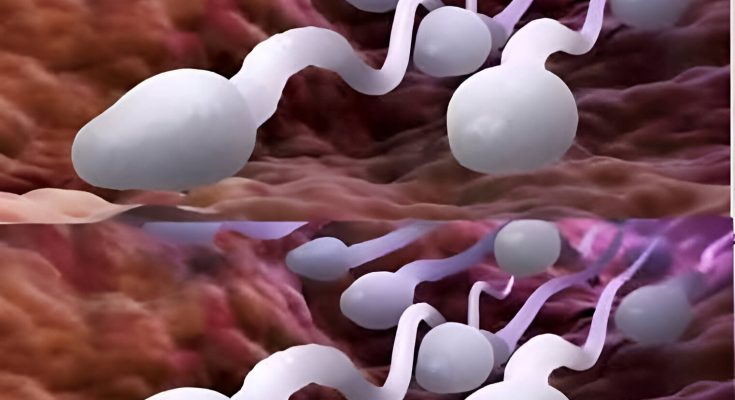Do You Wake Up With a Wet Pillow? Find Out Why You Drool While You Sleep

!! DOCTORS reveal that SWALLOWING your partner’s semen prov… See more

SWALLOWING your partner’s semen
!! DOCTORS reveal that SWALLOWING your partner’s semen prov… See more
Swallowing Semen: Science, Myths, and What You Really Need to Know
For something as ancient and intimate as oral sex, the topic of swallowing semen is still wrapped in curiosity, misinformation, and whispers. It’s a personal decision, often shaped by trust, communication, and comfort within a relationship—but also one that science has begun to examine more closely. So, what do we actually know about it? Let’s separate the facts from the fiction.

What Is Semen Really Made Of?
First things first: semen is much more than just sperm. In fact, sperm makes up only a small portion of the fluid. The bulk is seminal plasma, a cocktail produced by the prostate, seminal vesicles, and other glands. This fluid carries the sperm and contains:
- Proteins and enzymes
- Fructose (a sugar source for sperm)
- Minerals like zinc and potassium
- Hormones, including prostaglandins
- Water, which makes up most of the volume
It’s less like a superfood and more like a biologically designed delivery system—built for reproduction, not nutrition.

Is It Nutritious?
One of the most common myths is that semen offers significant nutritional value. While it’s true that it contains protein and sugar, the actual volume is small—usually between half a teaspoon to one teaspoon per ejaculation. Nutritionally speaking? It’s barely a blip on the radar. You’d have to consume an absurd amount to get meaningful calories or protein, which clearly isn’t the point.
Bottom line: semen contains nutrients, yes—but it’s not a meal replacement or health supplement.
Are There Any Health Benefits?
Some studies—mainly small or early-stage—have explored whether exposure to semen might have effects on things like mood, pregnancy outcomes, or hormonal interactions. For example, limited research has linked seminal plasma to lower risk of preeclampsia in pregnant women or suggested mood-boosting effects tied to hormones like prostaglandins.
But here’s the truth: these studies are far from conclusive. They often lack rigorous controls or large-scale replication, and no medical authority endorses semen ingestion as a treatment or wellness tool. While it’s biologically possible to absorb some compounds through the mouth, we don’t yet understand if or how they significantly impact health.
What About Risks?
This is where things get serious. The biggest medical consideration isn’t nutrition—it’s sexual health. Swallowing semen can expose you to sexually transmitted infections (STIs) such as:
- HIV
- Gonorrhea
- Chlamydia
- Herpes
- Syphilis
- HPV
These can be transmitted through oral sex, especially if there are open sores, cuts, or gum disease. Even in the absence of symptoms, a partner can carry and pass on infections. That’s why knowing your partner’s STI status and using protection—such as condoms—during oral sex is essential if you’re not in a mutually monogamous, tested relationship.
It’s About More Than Biology
For many couples, the act of swallowing semen is less about science and more about intimacy, trust, and preference. It might feel empowering, erotic, or simply be a non-issue. For others, it might not be desirable at all. The key is that it’s a personal choice, and like all intimate acts, it should come from mutual respect and open communication—not pressure, myths, or misinformation.
The Takeaway
Semen is a complex fluid with interesting components, but it offers little nutritional benefit. Some studies suggest possible health effects, but nothing definitive. The most important takeaway? The real risk lies in potential STI transmission—and that’s where informed, safe choices matter most.
So whether you choose to swallow or not, make sure it’s a decision based on trust, knowledge, and comfort—not taboos or internet myths.
 Studies reveal that
Studies reveal that

